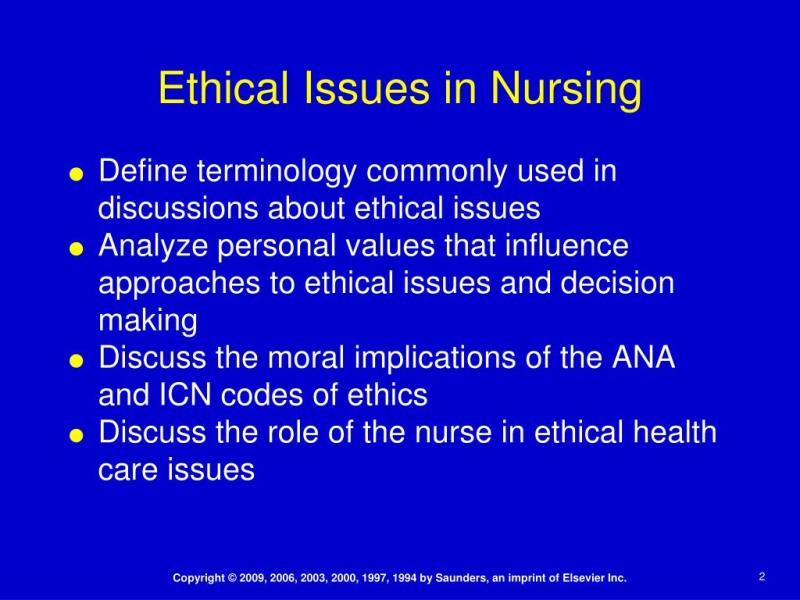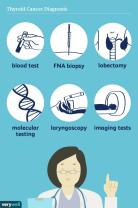What are some examples of ethical issues in medicine?
Ethical issues in medicine are diverse and can arise in various contexts, involving healthcare professionals, patients, and society. Here are some examples of ethical issues in medicine:
Informed Consent:
- Ensuring that patients fully understand the risks, benefits, and alternatives of a medical procedure or treatment.
- Addressing situations where a patient may lack the capacity to provide informed consent.
End-of-Life Decisions:
- Determining when and how to withhold or withdraw life-sustaining treatment.
- Balancing the principles of autonomy, beneficence, and non-maleficence in end-of-life care.
Resource Allocation:
- Allocating scarce resources, such as organs for transplantation or limited vaccine supplies during a pandemic.
- Addressing disparities in access to healthcare resources based on socioeconomic factors.
Genetic Testing and Counseling:
- Managing the ethical implications of genetic testing, including issues related to privacy, discrimination, and potential psychological harm.
- Deciding whether to disclose incidental findings in genetic testing.
Reproductive Ethics:
- Balancing the interests of potential parents with concerns about the well-being of the unborn child in assisted reproductive technologies.
- Addressing ethical issues related to surrogacy, embryo selection, and reproductive rights.
Medical Research:
- Ensuring the ethical conduct of clinical trials, including the recruitment of participants and reporting of results.
- Protecting the rights and well-being of research subjects, especially vulnerable populations.
Cultural Competence:
- Providing culturally competent care and respecting diverse beliefs and practices.
- Navigating situations where cultural or religious values may conflict with medical recommendations.
Healthcare Disparities:
- Addressing disparities in healthcare access, outcomes, and treatment based on race, ethnicity, gender, or socioeconomic status.
- Identifying and mitigating the social determinants of health that contribute to disparities.
Palliative Care:
- Ensuring access to quality palliative care for terminally ill patients.
- Balancing pain management with the risk of opioid addiction in patients with chronic pain.
Truth-Telling and Confidentiality:
- Balancing the duty to truthfully communicate medical information with the patient's right to confidentiality.
- Managing situations where the disclosure of certain information may lead to harm or distress.
Public Health Interventions:
- Balancing individual liberties with the need for public health measures during infectious disease outbreaks.
- Ethical considerations in vaccination policies, quarantine, and contact tracing.
Health Information Privacy:
- Safeguarding patient confidentiality and privacy in the digital age.
- Balancing the use of health information for research and public health purposes with individual privacy rights.
These examples highlight the complexity of ethical issues in medicine, and addressing them requires careful consideration of ethical principles, cultural nuances, and the specific circumstances of each case. Ethical decision-making in medicine involves navigating these complexities while upholding the values of beneficence, autonomy, justice, and non-maleficence.
How do cultural differences impact ethical issues in medicine?
Cultural differences can deeply impact ethical issues in medicine, raising complex challenges for both healthcare providers and patients. Here are some ways this happens:
1. Informed consent:
- Differing views on autonomy: Western ethics prioritize individual autonomy in decision-making, while other cultures may emphasize family or community consent, leading to conflicts when decisions need to be made.
- Communication barriers: Language and cultural understanding gaps can complicate the informed consent process, resulting in incomplete or misunderstandings of medical information.
- Religious beliefs: Certain religious beliefs might restrict procedures or treatments, even if medically beneficial, posing ethical dilemmas about respecting patient autonomy while upholding principles of beneficence (doing good).
2. End-of-life care:
- Death and dying beliefs: Cultural perspectives on death vary widely, influencing decisions about life support, resuscitation, and palliative care. Some cultures may prioritize prolongation of life at all costs, while others may view suffering as an acceptable part of the dying process.
- Family involvement: In family-centered cultures, decisions about end-of-life care may involve extended family members, potentially conflicting with the patient's individual wishes.
3. Allocating resources:
- Justice and distributive fairness: Different cultures prioritize justice differently, leading to ethical dilemmas about allocating scarce medical resources. Some cultures may favor utilitarianism (greatest good for the greatest number), while others may prioritize family needs or respect for social hierarchies.
- Access to healthcare: Cultural factors like poverty, discrimination, and lack of cultural competence among healthcare providers can create disparities in access to quality healthcare, raising ethical concerns about equal treatment and social justice.
4. Research ethics:
- Vulnerable populations: Certain cultural groups may be more vulnerable to exploitation in research due to power imbalances or lack of information. This raises ethical concerns about protecting human subjects and ensuring informed consent.
- Cultural sensitivity in research design: Studies conducted without understanding the cultural context of the participants can lead to inaccurate or misleading results, raising ethical concerns about validity and exploitation.
Navigating these complexities requires:
- Cultural competency training: Healthcare providers should be trained to respect and understand diverse cultural values and beliefs.
- Open communication: Clear and patient communication between healthcare providers and patients is crucial, considering language barriers and cultural interpretations.
- Community engagement: Involving community leaders and cultural experts in healthcare decision-making can help ensure culturally appropriate and ethically sound practices.
Ultimately, recognizing and navigating cultural differences in healthcare ethics is essential for providing respectful, high-quality care to all patients, regardless of their cultural background.











